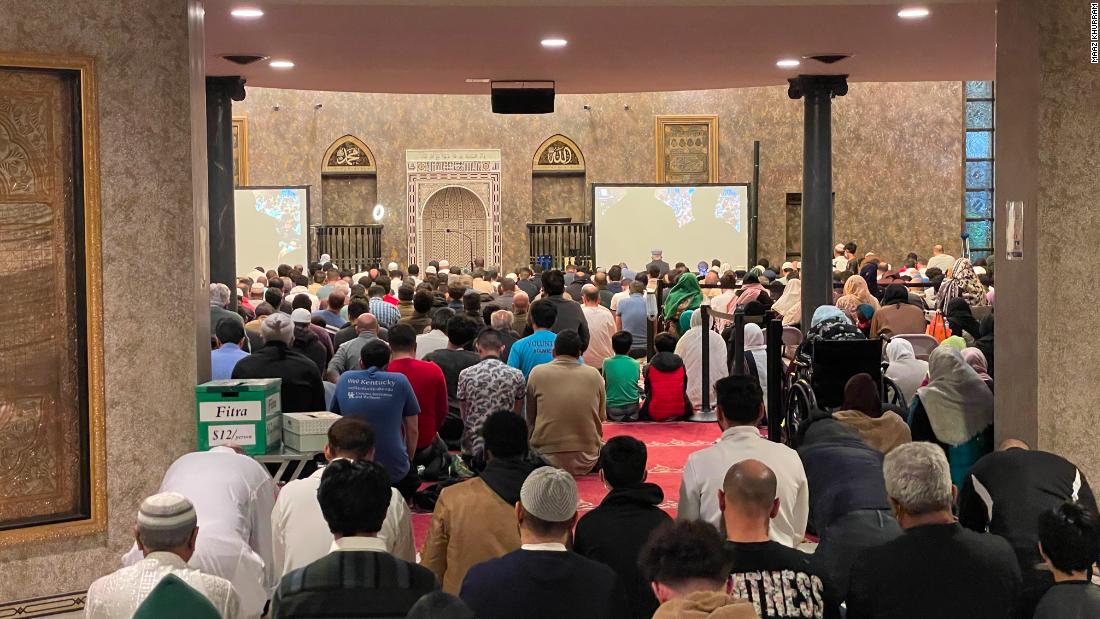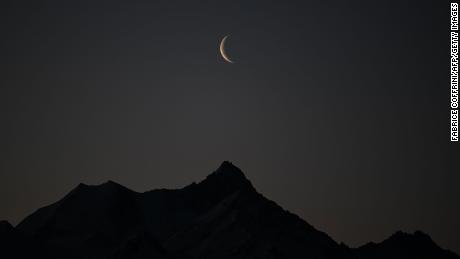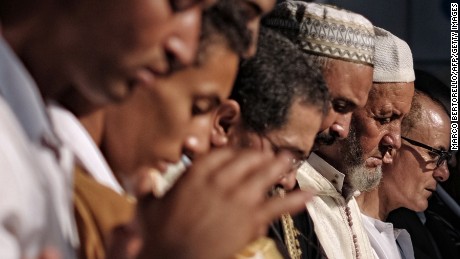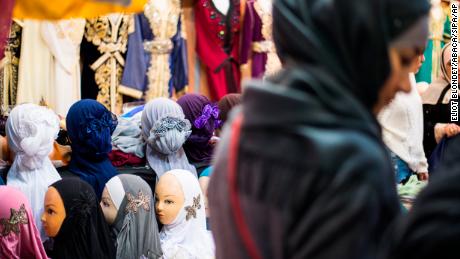It’s soon… ish. I only say that because my Eid and yours may not fall on the same day.
For peculiarly American reasons, many American Muslims might celebrate the same Eid on a different date. Even between kith and kin: My immediate family lives in Ohio. But some of my extended family, like my dad, live in Maryland. (Same time zone, mind you.) Of course, I plan to call the Maryland Moghuls and wish them an Eid Mubarak. I just don’t know when their Eid will be.
To the average American, this might sound strange. Before you call your parents to wish them a Merry Christmas, you don’t have to confirm that you’re all celebrating Christmas on the same day. But on a consistent basis, many American Muslims have no idea, up to and including the day beforehand, exactly when they’ll be celebrating their holiest holidays.
Others (let’s say Team B) believe astronomical calculation isn’t sufficient. They hold that someone qualified must actually see the first crescent moon as well (of course, it has to be an astronomically viable sighting by someone who won’t mix up the moon for Mars). This is a live dispute. Sometimes a minefield. For while I’m with Team B, our local mosque is Team A.
Meanwhile, my father’s mosque sides with Team B, although he himself believes that the calendar should be anchored to Mecca, no matter where you are (Team C?). For many Muslims, especially outside America, this debate is an anachronism at best. A centralized body, often government-run or backed, decides such things for everyone.
Of course, calendrically speaking at least, there’s a benefit to that level of coordination. After all, what’s the logic in not knowing when your most important religious occasions are set to commence? Unless you consider this minor hindrance a condensed symbol, a small thing that stands in for a much bigger truth, a challenge that is more so an opportunity. As I do.
Because America (mercifully) has no single Muslim directorate, neighboring mosques, even from the same denominations, might celebrate Eid (or, for that matter, start Ramadan) on different days.
It’s as if some churches did Christmas on December 24 and others in the exact same town went with December 25. Further, though, it’s as if several didn’t know which day it’d be until December 23. And then the next year it was 11 days (give or take a day) before one of those days. (The lunar year being shorter than the solar year, Ramadan reverses through the seasons on a 33-year rhythm.) The next time Ramadan will overlap with all of April, as it did this year, is roundabout 2055.
I hope that even then, in 2055, we’ll still be disagreeing.
The more I reflect on it, though, the more I suspect it’s the other way around. Because we have too little experience embracing disagreement, we don’t cooperate and collaborate all that effectively. Maybe an additional reason the Prophet Muhammad, peace be upon him, modeled variations in his prayer, his recitation of the Qur’an, and in a number of other areas wasn’t just to create flexibility in those specific things.
But perhaps it was also to empower his followers to live Islam in his absence, as one day they would have to — a Prophet, yes, but also still a mortal man. The lunar debate reveals what Islam was meant to be and, I pray, what Islam could be again. Orbiting this simple, significant truth: Because Muhammad is the last Prophet, there’s no revelation after him.
Upholding that is one of two conditions of becoming and staying Muslim. (The first is unitarian monotheism.) After the Prophet’s passing and forevermore, there will never again be anyone who can conclusively decide on a matter. This design feature, this core consequence of the Islamic creed, should hearten democrats and deject despots.
Because it means there’s no Islam without each of us having the rights and responsibilities that flow from moral agency. We can and should create communities to translate our strengths and priorities into the world, but none of these should impose on any other — and all of these should start and end with the sacred status of the individual in Islam.
After all, we are judged by God individually. And that which God holds each individual accountable for, no one should deny.
Of course, they can — practically speaking.
But then they’ll have to answer for it — theologically speaking. (It’s called the afterlife.)
American Islam doesn’t just present a provocative contrast with rigidly hierarchical interpretations of Islam, but actually also — dare I say — more closely approximates the founding Islamic spirit. And we’ll desperately need that egalitarianism, flexibility and nuance if we’re going to thrive in the future that accelerates toward us.
From climate change to cultural secularization, from rapidly growing populations to the turbulence introduced by disruptive new technologies, we face too many challenges and too much uncertainty not to invest in autonomy. A dynamic, flexible ummah — a web of overlapping sentiments — would be much more likely to prepare us for a fast-changing future.
People don’t feel attached to something they aren’t responsible for. Or made to feel they have any right to. How different for those of us who have to choose for ourselves — and choose again and again. If you focus on the messiness that follows, you’ll miss the point. But if you focus on why there’s messiness in the first place?
So, yes, I will call the Maryland branch of the family this weekend. I’ll tell them that on Monday morning, we’ll be heading to the Islamic Center of Greater Cincinnati for Eid prayers, but the 10 a.m.service, not the 7 a.m., thank God. They’ll wish me Eid Mubarak. And maybe I’ll wish them Eid Mubarak. Because while Monday will be my Eid, it might not be theirs.
And we’ll do the exact same thing next year.
And that’s more than just OK. It’s genuinely beautiful.








More News
Bruce Nordstrom, Who Helped Lead His Family’s Retail Empire, Dies at 90
Hochul Visits an Ancestral Home, 3,000 Miles From the Governor’s Mansion
Opinion | Seven Theories for Why Biden Is Losing (and What He Should Do About It)